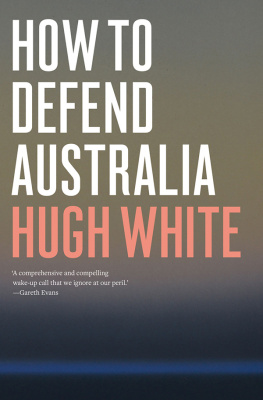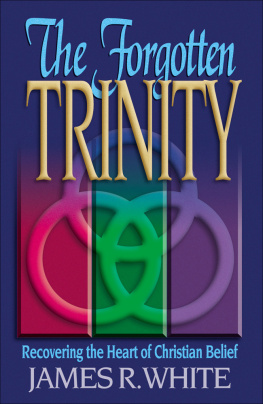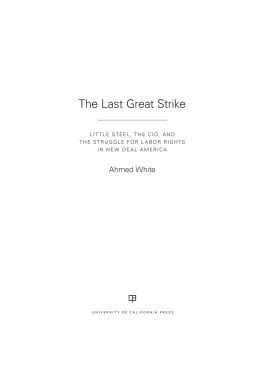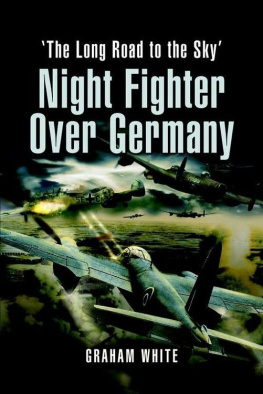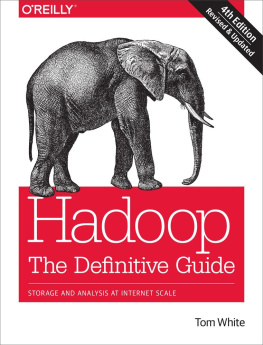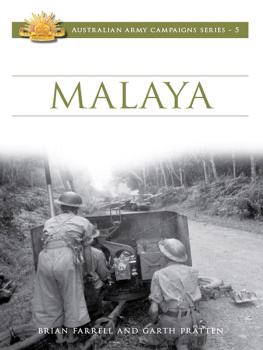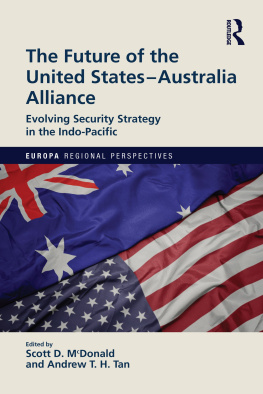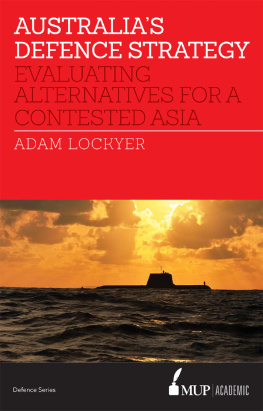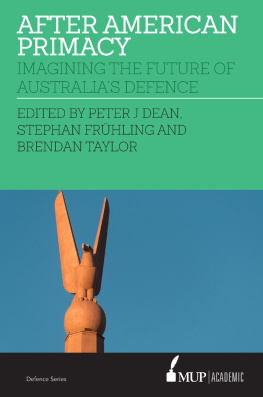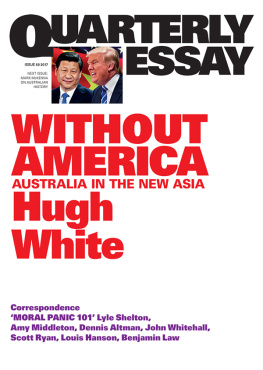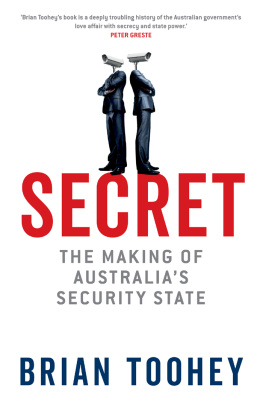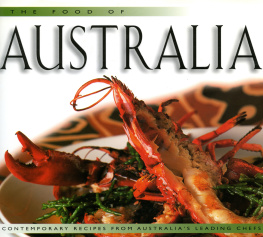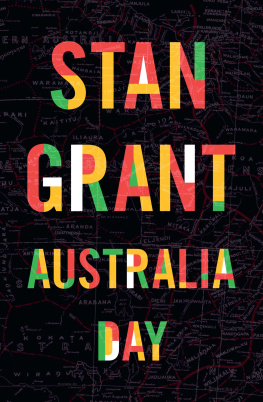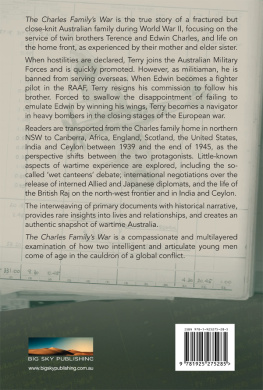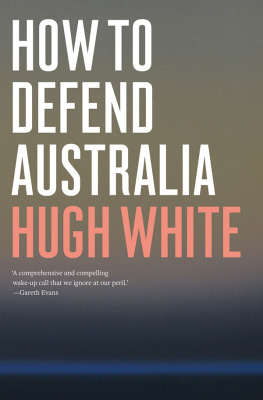PRAISE FOR HOW TO DEFEND AUSTRALIA
In How to Defend Australia, a characteristically lucid and provocative Hugh White initiates a national conversation Australia must now have. His premises are hard to contest: that America is going; that China, India and Indonesia are all coming; that we must base our risk planning on their capability, not presumed intent; and that Australias relative strength is waning. His major conclusions will not go unchallenged: that credible maritime denial must be at the heart of our defence policy, and neither present planning nor spending levels will deliver it. Not to mention his willingness to keep open a nuclear weapons option. But this long-awaited summation of a lifetimes professional thinking is a comprehensive and compelling wake-up call that we ignore at our peril.
GARETH EVANS, foreign minister, 198896
Hugh White is among our most knowledgeable and practised strategists. While I am strongly supportive of the US alliance, How to Defend Australia is a serious work from a serious patriot that requires close reading. It deserves a wide audience.
KIM BEAZLEY, minister for defence, 19841990, deputy prime minister of Australia, 19951996, and ambassador to the United States, 20102016
In this essential book, carefully argued and elegantly written, Hugh White lays out the scope and scale of the hard decisions Australia has to make about its defence as the world changes rapidly around it. How to Defend Australia sets the terms for an unavoidable national debate: the Australia choice.
ALLAN GYNGELL, national president of the Australian Institute of International Affairs and founding director of the Lowy Institute
Hugh White strips the politics from defence planning and takes a cool-headed look at who might threaten Australia and what we need to do about it. This is the real-world debate our leaders are reluctant to have. And White doesnt hold back.
KAREN MIDDLETON, chief political correspondent for The Saturday Paper and author of An Unwinnable War: Australia in Afghanistan
A fascinating story about defence planning from our past, present, and possible futures. In Whites expert assessment we find ourselves facing significant new challenges, and the expensive capabilities we have are unsuitable. We are likely to be caught out with too little, too late in circumstances we seemingly cannot imagine. US global power has seriously diminished; Chinas grip on our region has tightened up immeasurably; in Indonesia the population will be over 300 million people and the economy will be nearly four times greater than Australias. This new world will present serious challenges: to our sense of identity and the kind of country we would like to be. White argues that it is time to take off the blinkers and open our eyes to a future Australia that will demand very different security solutions. Unsurprisingly, this book is provocative its ideas will be debated. But it is clear that we cannot rely on hope to safeguard our future. Whites polemic raises the key questions for our political leaders, experts and the community concerned with Australian strategy all of whom must read this book.
ADMIRAL CHRISTOPHER ALEXANDER BARRIE, retired senior officer of the RAN and former chief of the ADF, 19982002
This book, by one of Australias leading defence policy thinkers, will be a very important contribution to our national discussion in coming years. Hugh White tackles many challenging issues and opens up the new debate that we need to have as Australia plots its course through a changing international environment.
ROBERT ONEILL, former Chichele professor of the history of war, University of Oxford
Hugh Whites prowess as a strategic analyst rests on twin capabilities: a determination to ask the questions that others dont dare or havent thought to ask; and a pristine clarity of logic in answering them. Here, he applies them to his life-long passion: Australian defence policy. Closely argued and erudite, How to Defend Australia raises crucial questions at a critical time in our strategic planning. A must-read for all who care about this countrys future safety, this book will be a major influence in our defence policy discussions into the future.
MICHAEL WESLEY, professor of international affairs at the ANU and author of Restless Continent: Wealth, Rivalry and Asias New Geopolitics

Published by La Trobe University Press in conjunction with Black Inc.
Level 1, 221 Drummond Street
Carlton VIC 3053, Australia
www.blackincbooks.com
www.latrobeuniversitypress.com.au
Copyright Hugh White 2019
Hugh White asserts his right to be known as the author of this work.
ALL RIGHTS RESERVED.
No part of this publication may be reproduced, stored in a retrieval system, or transmitted in any form by any means electronic, mechanical, photocopying, recording or otherwise without the prior consent of the publishers.
La Trobe University plays an integral role in Australias public intellectual life, and is recognised globally for its research excellence and commitment to ideas and debate. La Trobe University Press publishes books of high intellectual quality, aimed at general readers. Titles range across the humanities and sciences, and are written by distinguished and innovative scholars. La Trobe University Press books are produced in conjunction with Black Inc., an independent Australian publishing house. The members of the LTUP Editorial Board are Vice-Chancellors Fellows Emeritus Professor Robert Manne and Dr Elizabeth Finkel, and Morry Schwartz and Chris Feik of Black Inc.
9781760640996 (paperback)
9781743820971 (ebook)

Cover design by Akiko Chan
Cover artwork by Wayne Viney 2019
Text design and typesetting by Akiko Chan
Author photo courtesy of the Australian National University
TO THE MEMORY OF
Edward Lumley Delpratt White
AUTHORS NOTE
I started thinking and writing about how to defend Australia some thirty-five years ago, when, as a foreign affairs and defence correspondent in the Canberra press gallery, I found myself asking why the government had decided to buy this or that bit of defence equipment. I soon discovered that those questions couldnt be answered without first answering a host of others: what are our armed forces really supposed to be able to do? What kinds of wars are they supposed to fight? How would they fight them, and against whom? I have been exploring these questions ever since, and in this book I offer some answers.
My aim in doing so is to show that we can give better responses to these questions than the bland generalisations and supple evasions that we usually find in defence policy statements, both classified and public. They are not easy questions to answer, because they look to the future and often the rather distant future and they concern war, which remains one of the most puzzling and unpredictable aspects of human behaviour. There are few hard facts to work with, so we must rely on judgements about things that are at best uncertain, and sometimes quite unknowable. However, we can reduce the scope for error by setting out those judgements clearly and in logical order, see what they are, understand their relationship with one another, test and debate their validity and understand how a change in one judgement affects others. The better we do this, the less likely we are to make untested or unconscious assumptions or reach unwarranted conclusions.
Next page
